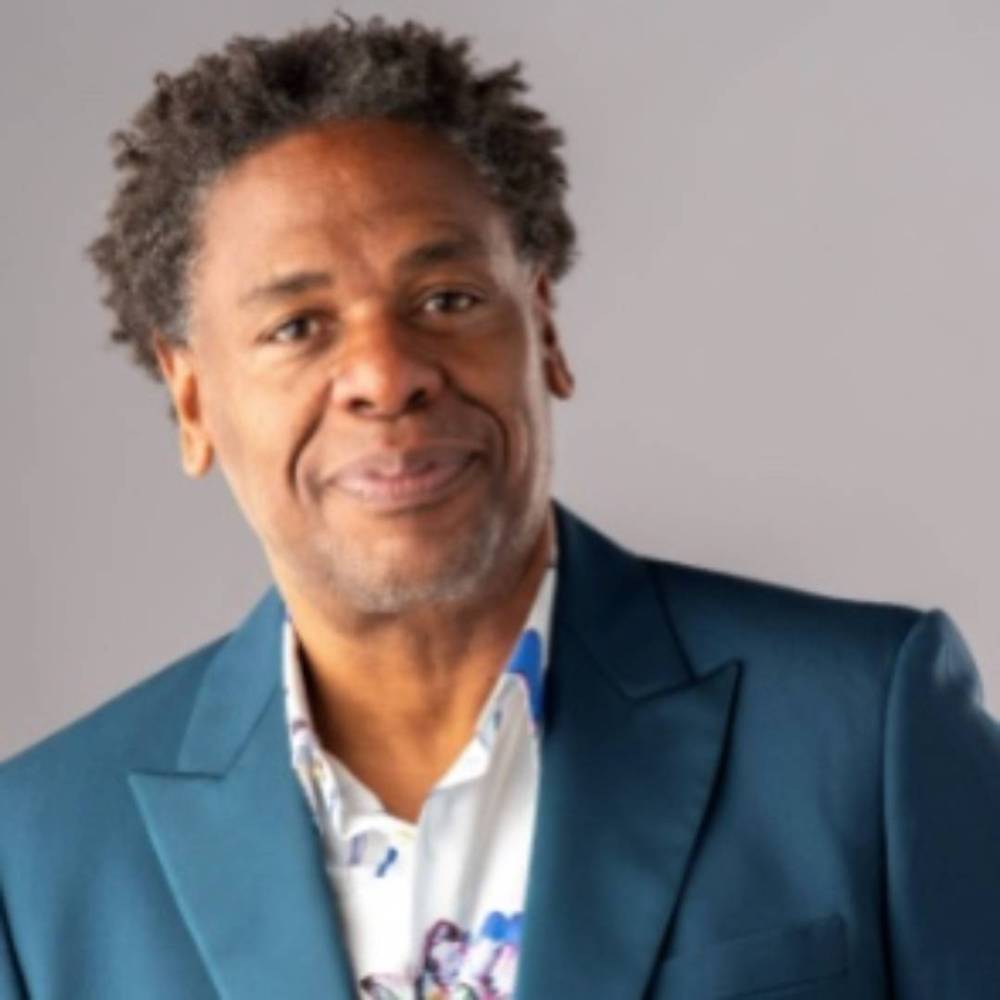Image via Julie Yarbrough Photography
Staley Sharples says that writing is telling yourself you’re worthless and a God at the same time.
Terrance McKnight is many things to many people—some know him as an accomplished pianist, others recognize his warm and familiar voice from his long-running radio program on New York’s WQXR, while former students remember his instruction during his tenure at Morehouse College. This year, the musician, host, teacher, and author of the upcoming book Concert Black adds a new title with his podcast, Every Voice With Terrance McKnight.
Spanning over a hundred years of history, McKnight uses his debut season to explore Mozart and Verdi’s famous operas The Magic Flute, Otello, Aida, and Abduction from the Seraglio – as he works to decenter whiteness from classical music while shining a light on the outdated and racist stereotypes upheld through these works. In Every Voice, McKnight finds his own story illuminated in a project that writes a new chapter for the Mississippi-based artist, using his personal experience to make classical music accessible and engaging for all.
As the youngest of five siblings, McKnight fondly recalls a childhood filled with a love for family, community, and education. Showing his prodigious skill for music in childhood, McKnight experimented with the trumpet and accompanied his father’s church services as a pianist. McKnight’s talent as a musician only slightly edged out his innate sense of curiosity. This desire to learn was nurtured by his father, a beloved pastor who led Bible school around the kitchen table, and his mother, who would instruct a young McKnight to read at the library after elementary school until she could return home from work. Early supporters of the budding musician, McKnight’s mother and father encouraged their son to cultivate his gift, reminding him to practice and “use your music to help somebody.”
Their words led McKnight to attend Morehouse College, where his creative identity began to truly take shape. Singing in the Morehouse Glee Club, McKnight’s world opened up beyond the confines of what he’d been taught in his years of musical study. However, it was a chance trip to West Africa that gave McKnight a new outlook on classical music—there, he found that the works of famed composers like Chopin, Liszt, or Bach didn’t resonate, as it reminded people of the violent history of colonialism and erasure of their culture. Upon his return, McKnight convened with his mentor Andre Watts about his program for his final recital, which would focus on Black composers like William Grant Still and Florence Price. Watts gave McKnight his vote of confidence and set him on a path to continuously seek ways to connect to listeners through diverse cultural representation in music.
In his podcast, McKnight shares a touching anecdote behind his creative philosophy. As a boy, McKnight’s father would encourage his son to join him in picking up trash in the parking lot of their local grocery store. When McKnight asked why they were spending their time doing this, his father explained that this simple act of service was a way of making the world a kinder place for everyone. It’s a piece of wisdom the accomplished pianist, host, and historian has carried with him into an illustrious career. McKnight beams when discussing his father, citing his way of moving people towards the truth, aided by a gentle guiding hand that encouraged his congregants to reflect on their shared humanity.
“As a pastor, you have to try and say what’s true, but not make people feel bad about how they live,” McKnight says. “He would always try to find a way of making people feel welcome and making people feel special even as he’s saying, we can all be better.”
When asked about his reasons behind the development of the podcast, McKnight shares that his goal is to introduce a new way of thinking about classical music. In paving the way for actionable change in the culture of the arts, he hopes to create a space where everyone is celebrated. Channeling his father, McKnight explains: “We can all love a little better. We can all clean up our community a little bit better and beautify it a little bit better for all of us.”

